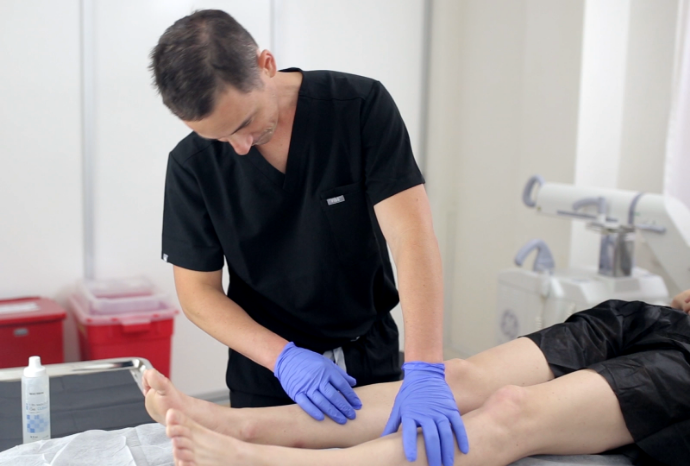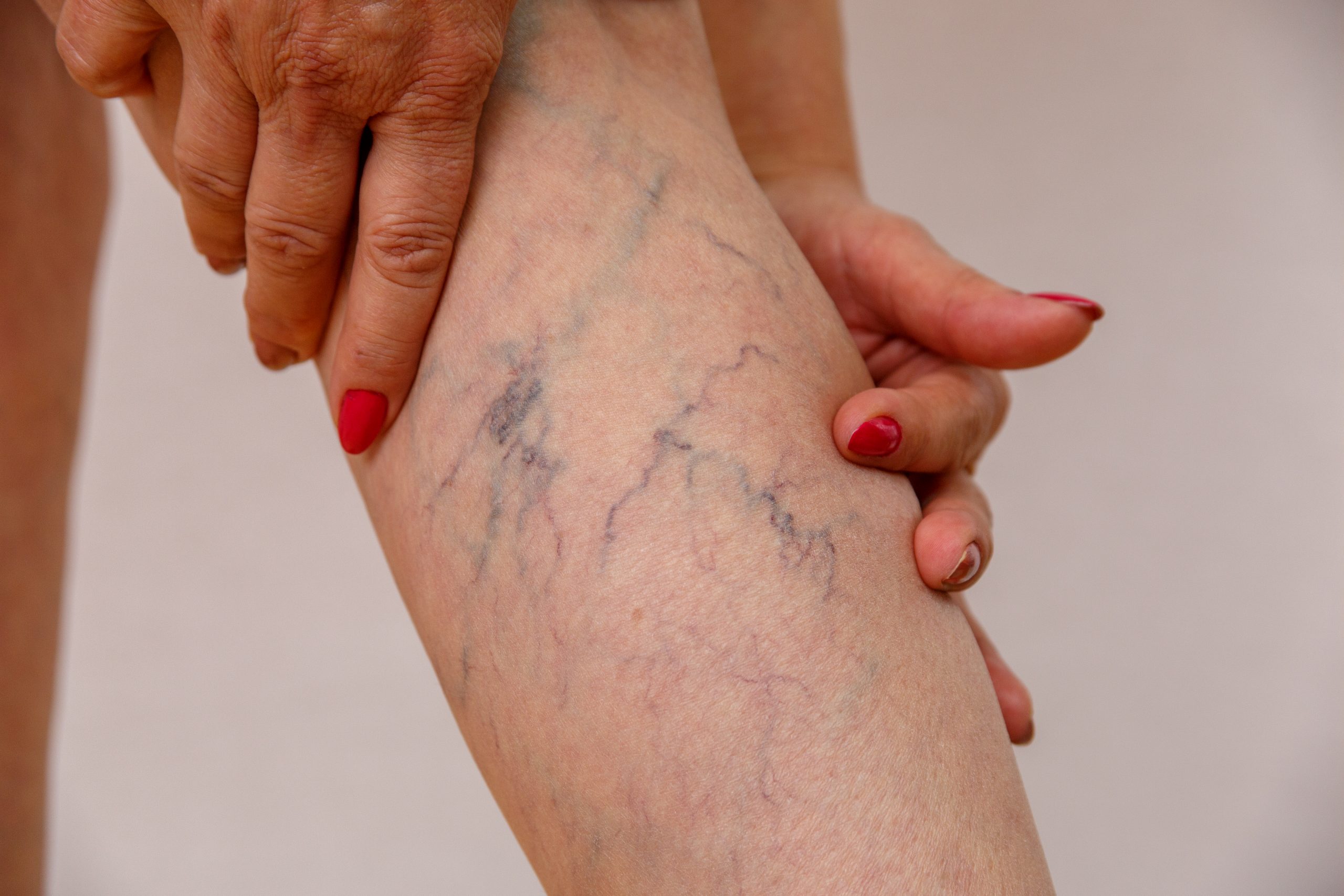What Kind of Doctor Treats Veins and What Is a Vein Specialist Called?
Vein issues are more common than many realize, affecting millions of people worldwide. From varicose veins to spider veins, many individuals experience discomfort, pain, and cosmetic concerns due to vein problems. But when these issues arise, who should you consult? Understanding the role of vein specialists, what they’re called, and how they can help is vital for addressing any concerns effectively. In this article, we’ll explore the advantages of seeing a vein doctor and the various types of professionals who specialize in treating veins.
What Kind of Doctor Treats Veins?
Vein problems can range from minor aesthetic concerns to serious medical conditions. Therefore, it’s essential to know what kind of doctor treats veins, as getting the right care can improve your quality of life and health. A doctor who specializes in diagnosing and treating vein disorders is called a vein specialist, or more formally, a vascular specialist. These professionals focus on veins, arteries, and circulatory health.
There are several types of doctors who treat veins, each with unique specialties:

1. Phlebologists
A phlebologist is a medical professional who primarily focuses on diagnosing and treating vein disorders. They specialize in managing conditions like varicose veins, spider veins, and chronic venous insufficiency. Phlebologists perform minimally invasive procedures like sclerotherapy, endovenous laser treatment (EVLT), and radiofrequency ablation (RFA). These treatments are designed to reduce discomfort, improve appearance, and promote better circulation. The advantage of seeing a phlebologist is their deep understanding of veins and their non-surgical approach to treatment.
2. Vascular Surgeons
Vascular surgeons are trained to perform surgeries on veins and arteries. They handle more severe cases of venous disease, such as blood clots or deep vein thrombosis (DVT), and treat issues that require surgical intervention. For those with advanced vein disease, vascular surgeons offer a comprehensive treatment plan that may involve procedures like vein stripping or bypass surgery. The advantage of seeing a vascular surgeon lies in their ability to tackle complex, life-threatening conditions related to veins.
3. Interventional Radiologists
Interventional radiologists specialize in performing minimally invasive procedures using imaging techniques like ultrasound and X-ray. They treat veins using cutting-edge technology, guiding catheters and lasers to resolve problematic veins. The advantage of choosing an interventional radiologist for vein treatment is their precision and use of state-of-the-art imaging, ensuring effective and targeted therapy.

4. Dermatologists
While dermatologists primarily treat skin conditions, some also specialize in cosmetic vein treatments. Dermatologists often handle superficial vein issues such as spider veins, which can be removed with sclerotherapy or laser treatments. The advantage of seeing a dermatologist for vein treatment is that they focus on the skin's appearance and health, making them ideal for cosmetic concerns related to veins.
What Is a Vein Specialist Called?
Now that you know the types of doctors who treat veins, you might wonder: what is a vein specialist called? The terminology can sometimes be confusing because different medical professionals treat veins depending on the severity and type of condition. However, in general, vein specialists are called phlebologists or vascular surgeons.
1. Phlebologist
A phlebologist is a type of vein specialist who focuses primarily on venous conditions. They manage diseases and issues related to veins, including varicose veins, venous insufficiency, and leg ulcers. Phlebologists perform procedures to improve blood flow and treat damaged veins, and they play a crucial role in the management of chronic venous diseases. Patients with mild to moderate vein problems typically consult a phlebologist for treatment. The advantage of seeing a phlebologist is their specialization in vein health, offering non-surgical and innovative treatments.
2. Vascular Surgeon
A vascular surgeon is another type of vein specialist who deals with complex and severe vein conditions. These professionals are called upon when surgery is required to fix vein-related issues. They also treat patients with arterial problems and other circulatory conditions. Although vascular surgeons are known for performing surgeries, they also provide non-surgical treatments for vein problems when necessary. The advantage of seeing a vascular surgeon lies in their ability to offer both medical management and surgical solutions for venous diseases.
3. Interventional Radiologist
Interventional radiologists are specialists trained in using imaging to guide minimally invasive procedures. When it comes to vein treatment, interventional radiologists are called upon to perform procedures like endovenous ablation and venous stenting. Their use of high-tech imaging ensures precise treatment, making them an excellent choice for complex or deep vein issues. The advantage of interventional radiologists is their ability to diagnose and treat vein conditions with minimal discomfort and advanced technology.
Why Do You Need a Vein Specialist?
Many people delay seeking treatment for vein issues, either because they consider the problem cosmetic or don’t realize the potential complications of untreated vein diseases. However, seeing a vein specialist early can prevent future problems, alleviate discomfort, and improve overall health.
1. Improved Circulation
Vein specialists help to restore proper blood flow in your veins. Conditions like varicose veins can impede circulation, leading to swelling, pain, and even blood clots. A vein specialist will evaluate your symptoms, recommend appropriate treatment, and help you achieve better blood flow throughout your body.
2. Preventing Complications
Untreated vein problems can result in serious health conditions like deep vein thrombosis, chronic venous insufficiency, or leg ulcers. These conditions are not just cosmetic but can significantly impact your mobility and quality of life. By consulting a vein specialist, you can prevent these complications and manage any underlying health issues.
3. Pain Relief
Varicose veins and other venous disorders can cause significant discomfort. Patients often experience throbbing, burning, or heaviness in their legs, especially after long periods of standing. A vein specialist can treat the root cause of the discomfort, offering relief from the symptoms that affect your daily life.
4. Cosmetic Benefits
Many individuals seek treatment for veins due to their appearance. Varicose veins, spider veins, and other visible vein conditions can be embarrassing, making patients self-conscious. A vein specialist offers treatments that not only improve your health but also enhance your confidence by reducing the appearance of unsightly veins.
When Should You See a Vein Specialist?
It’s essential to know when it’s time to see a vein specialist. Here are some signs that you should schedule a consultation:
- Visible veins: If you notice bulging, twisted veins or clusters of spider veins, a vein specialist can evaluate the issue and recommend treatment.
- Swelling or heaviness: Persistent swelling or heaviness in the legs can indicate venous insufficiency, which requires medical attention.
- Pain: Discomfort, throbbing, or burning in the legs, especially after standing or walking, may be related to vein problems.
- Ulcers or sores: Chronic venous insufficiency can lead to leg ulcers that are slow to heal. If you have sores on your legs, it’s crucial to see a vein specialist promptly.
Conclusion
In summary, when faced with vein problems, the type of doctor you need depends on the severity and nature of your condition. Phlebologists, vascular surgeons, interventional radiologists, and dermatologists all offer specialized care for vein issues. Understanding what kind of doctor treats veins and what a vein specialist is called helps ensure you seek the right professional for your needs. Whether it’s for medical reasons or cosmetic improvement, seeing a vein specialist can offer significant benefits to your health and well-being.
Comments
Post a Comment